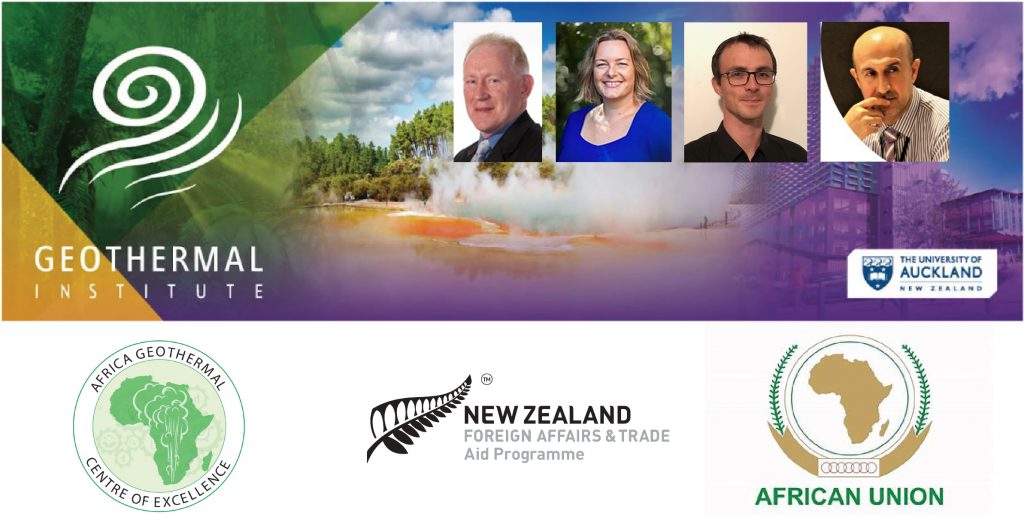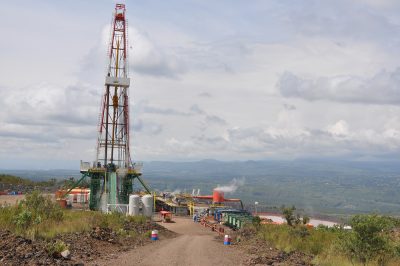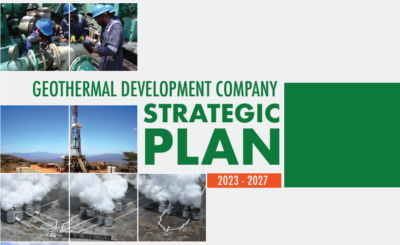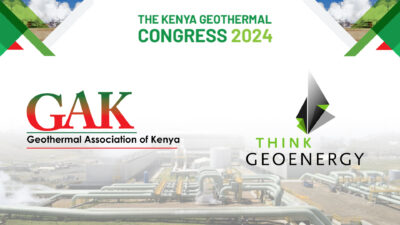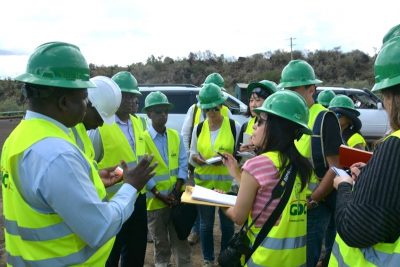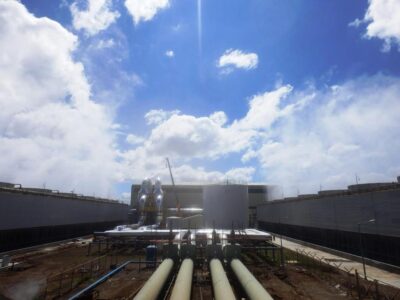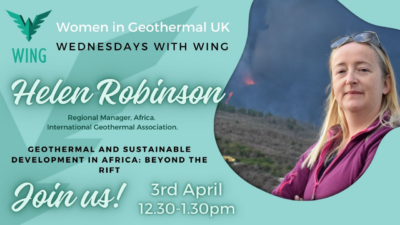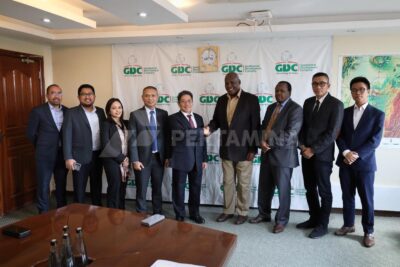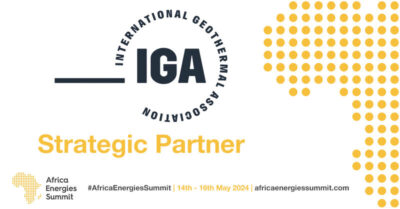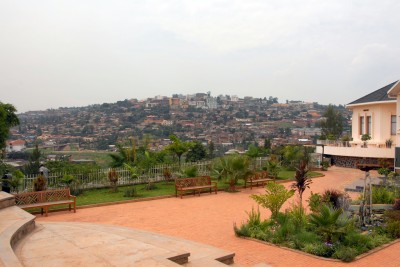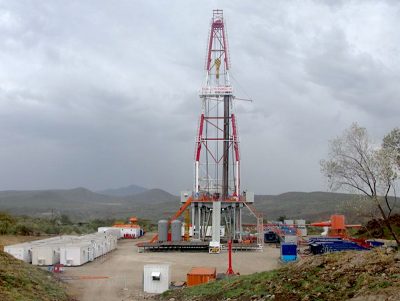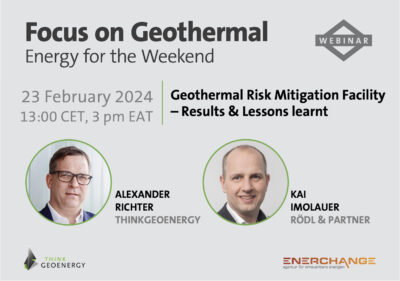East African Geothermal Facility Webinar Series; Week 3 – Utilisation
The East Africa Geothermal Facility Webinar Series continues with Week 3 - Utilisation. Registration is currently open for these webinars.
Recordings for Week 3 of the East Africa Geothermal Facility Webinar Series will soon be available for download. Week 3 deals with Utilisation – low-temperature geothermal, binary plant operations, and geothermal direct use. To access the webinar recordings, please register via this link.
There will also be a live Q & A session with the presenters of these webinars on Thursday, 8 June 2023, 11 AM (East Africa Time).
The East Africa Geothermal Facility Webinar Series will run for four weeks from May to June 2023. It is being organized by the University of Auckland Geothermal Institute and the East Africa Geothermal Facility. More details on the East Africa Geothermal Facility Webinar Series along with the schedules and registration links for the rest of the webinars are available in a piece we had previously published.
Separate pieces provide details on Week 1 and Week 2 of the webinar series.
For any questions about the event, please contact Program Coordinator Theo Renaud (theo.renaud.@auckland.ac.nz).

Webinar 7 – Feasibility study for binary plant options for small projects and for brine heat recovery; Key issues to evaluate in your Feasibility Study.
The main focus will be on mid-low temp applications which can open up more resource areas and capacity. As well as small and medium temperature projects, the presentation will provide information on high temperature developments involving binary units since these have been quite important in a number of locations such as Mokai, Rotokawa, and Ngatamariki high temp fields in NZ, Leyte in the Philippines, and in Turkey where triple flash plants utilize an HP steam turbine that exhausts to binary unit(s) due to relatively high NCG content in the HP flash, while IP and LP steam feed condensing steam turbines.
Speaker: Tracy Mills (tracy.mills@jacobs.com)
Tracy Mills is a very skilled project engineer with over 40 years of experience in thermal and, predominantly, geothermal power engineering. He has amassed geothermal energy sector experience over a broad range of engineering areas on projects in New Zealand, Kenya, Ethiopia, Nicaragua, the Philippines, Indonesia, Russia and elsewhere.
This knowledge and understanding spans geothermal development from resource investigation, project feasibility, procurement, design and design review, construction supervision, to commissioning and operational trouble-shooting on single, dual, and triple flash steam turbine and ORC/binary power production systems.
Webinar 8 – Reservoir Engineering and Modelling considerations for low temperature geothermal
Low-temperature geothermal resources are often neglected in favour of hotter systems with electricity generation potential. However, interest in low-temperature geothermal systems is growing due to their range of potential uses and business opportunities particularly for local communities.
Sustainable management of low-temperature geothermal resources has unique challenges for each project, which benefit from dedicated modelling. This webinar introduces the basics of reservoir engineering and modelling of low-temperature geothermal systems, with real- world examples of challenges and outcomes.
Speakers: Sophie Pearson-Grant (s.pearson-grant@gns.cri.nz) and Theo Renaud (theo.renaud@auckland.ac.nz)
Dr. Sophie Pearson-Grant is a senior geothermal reservoir modeller at GNS Science. Her specialty is understanding the complex pathways that fluids take from the heat source to the surface at geothermal fields and volcanoes, often working at the interface between numerical modelling and earth sciences.
Her research has won awards at 3 international conferences, received a prestigious Marsden Fast-Start grant, and been featured on radio and in the NZ Herald, US GeoHeat bulletin, and Wilderness magazine.
Dr. Theo Renaud is a Research Fellow at the institute. His research focuses in on modelling deep geothermal system in low temperature and high temperature contexts, inverse modelling and wellbore analysis. He is engaging into more developments of sustainable geothermal energy uses and methods for communities and scientists through transdisciplinary approaches.
Thanks to his teaching experience in geothermal reservoir engineering, he is committed to strengthen the knowledge and skills of anyone willing to learn about geothermal and mentoring students in understanding the key processes when creating and calibrating numerical models.
Webinar 9 – Geothermal Direct Use
Direct use is the utilisation of heat in geothermal fluid to provide energy for any end-use except electricity generation. The geothermal direct use industry has been witnessing > 50% growth every five years due to the numerous low-temperature resources worldwide. Main applications includes space heating, greenhouse heating, industrial uses, aquaculture heating and recreation bathing and swimming,
The lecture provides an overview of direct use and the potential to reduce the reliance on fossil fuels.
Speaker: Sadiq Zarrouk (s.zarrouk@auckland.ac.nz)
Sadiq J. Zarrouk is Co-Director of the Geothermal Institute, an Associate Professor of Geothermal Engineering and the course director for the Postgraduate Certificate in Geothermal Energy Technology at the Department of Engineering Science, The University of Auckland, New Zealand.
Sadiq has extended research and commercial field experience in geothermal and reservoir engineering with more than 26 years of experience in geothermal energy training and research with more than 190 publications in journals and conference proceedings, three patents and two books.
Sadiq is an elected member of the board of directors of the International Geothermal Association (IGA) 2013-2020 and the New Zealand Geothermal Association since 2011. He is a member of the organising committee of the New Zealand Geothermal Workshop since 2006 and an Associate Editor to Geothermics since 2020.
